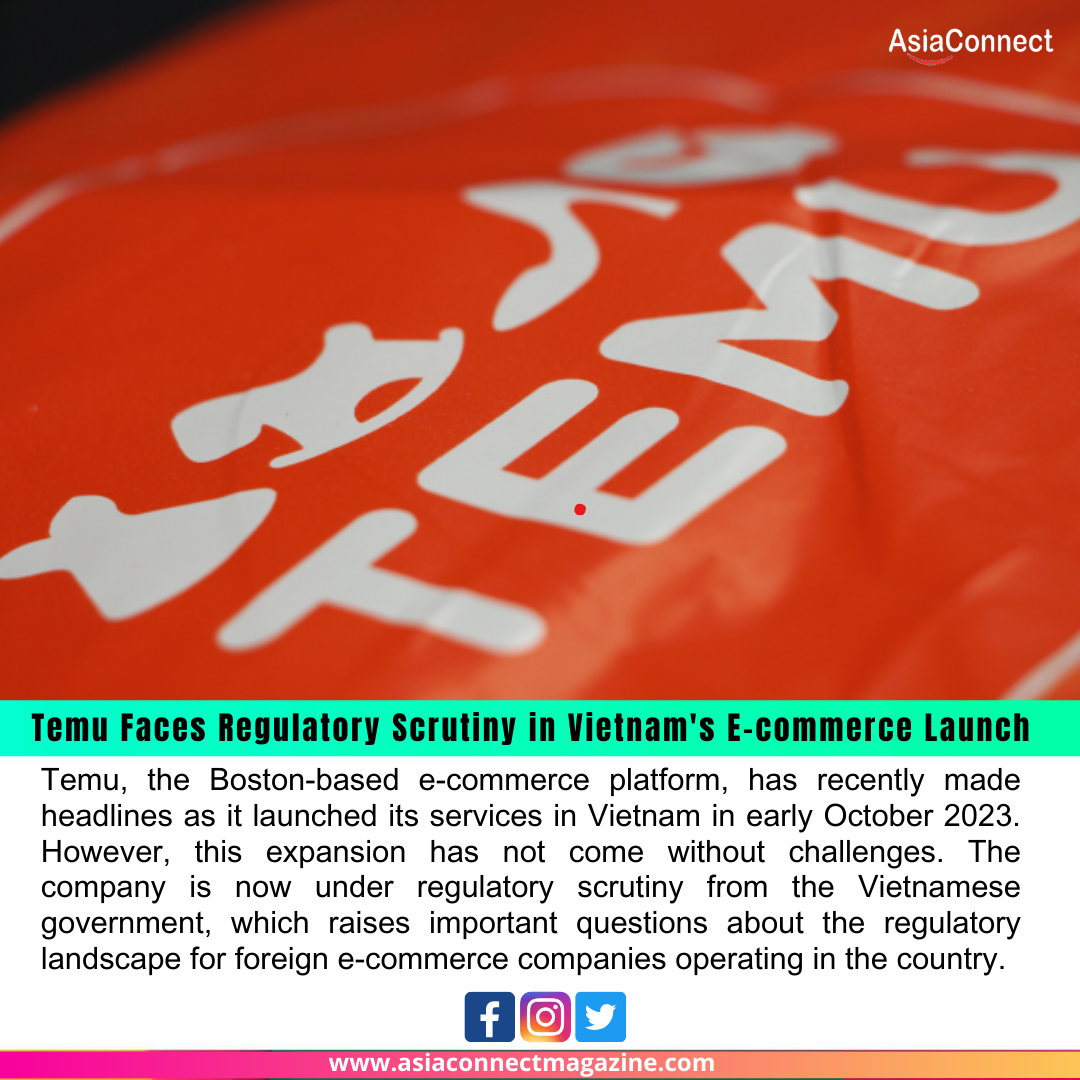Temu, the Boston-based e-commerce platform, has recently made headlines as it launched its services in Vietnam in early October 2023. However, this expansion has not come without challenges. The company is now under regulatory scrutiny from the Vietnamese government, which raises important questions about the regulatory landscape for foreign e-commerce companies operating in the country.
Temu, which is part of the Chinese e-commerce giant PDD Holdings, aims to offer a wide range of products at competitive prices, leveraging its supply chain and logistics expertise. With its entry into the Vietnamese market, Temu hopes to tap into the rapidly growing e-commerce sector in Southeast Asia, which has seen significant growth in recent years. The region’s increasing internet penetration and mobile usage make it an attractive destination for foreign players.
However, Temu’s launch has caught the attention of Vietnamese regulators who are concerned about compliance with local laws and regulations. Vietnam has been actively working to regulate its burgeoning e-commerce sector, implementing strict guidelines to ensure fair competition, consumer protection, and data privacy. The government is particularly vigilant about foreign companies entering the market, fearing potential disruptions to local businesses and the economy.
One of the primary areas of concern for regulators is how Temu will handle issues related to taxation, consumer rights, and data protection. The Vietnamese government has been known to impose hefty fines on companies that fail to comply with local regulations, and there is growing pressure to ensure that foreign companies adhere to the same standards as domestic ones. As a result, Temu may face additional hurdles in navigating the legal landscape and meeting compliance requirements.
Moreover, the scrutiny reflects broader geopolitical tensions between Vietnam and China, which have affected various sectors, including trade and investment. Vietnamese authorities may take a cautious approach towards Chinese-backed firms, and Temu, being associated with a major Chinese company, could face heightened scrutiny as a result. This situation underscores the need for Temu to not only focus on business growth but also to build strong relationships with local stakeholders and demonstrate its commitment to operating within the regulatory framework.
To mitigate these challenges, Temu will need to prioritize transparency in its operations and establish clear communication channels with the Vietnamese government. Engaging with local authorities and stakeholders can help build trust and pave the way for smoother operations in the future. Additionally, Temu may need to invest in understanding the local market dynamics and consumer behavior to tailor its offerings effectively.
Despite these challenges, the potential for growth in Vietnam’s e-commerce market remains significant. With a young population increasingly turning to online shopping, companies like Temu can capitalize on this trend by providing innovative solutions and competitive pricing. If Temu can navigate the regulatory landscape effectively, it stands to gain a foothold in a lucrative market with vast opportunities.
In conclusion, while Temu’s launch in Vietnam marks an exciting new chapter for the company, it also highlights the complexities of operating in a foreign market under regulatory scrutiny. As Temu embarks on this journey, its ability to adapt to local laws and foster positive relationships with regulators will be crucial to its long-term success in Vietnam’s vibrant e-commerce sector.





